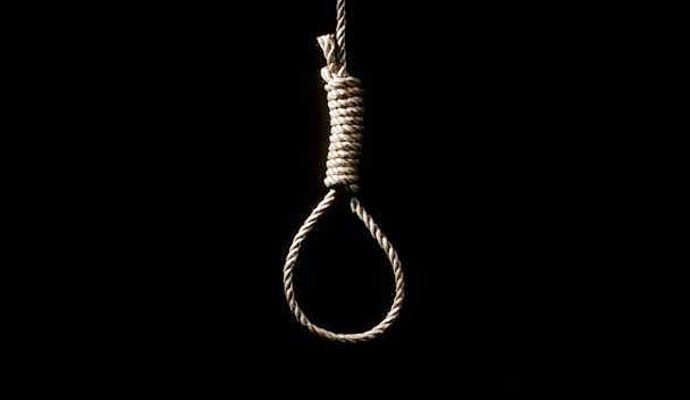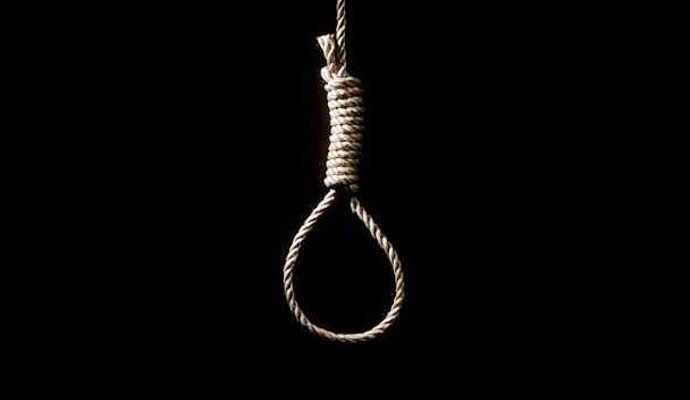
“Reconciliation does not mean forgetting or trying to bury the pain of conflict, but that reconciliation means working together to correct the legacy of past injustice.” ~ Nelson Mandela
It would appear that Senator Enyinnaya Abaribe’s controversial call on President Buhari to resign hit the bullseye. I had opined in my last article that the Abia Senator indirectly told the North to wake up as the rest of the country seems to have finally lost its patience with the region’s seeming anathema for progress even after dominating the country’s leadership for many decades.
Subsequently, notable northern leaders are speaking out. The Emir of Kano, Alhaji Sanusi Lamido reiterated his position on sanitising the Almajiri system, stating that Islam prohibits begging and that those who claim otherwise are misleading the people. Governor Zulum of Borno state publicly blamed the military for the Auno attack and in a subsequent sympathy visit the President pointedly told traditional rulers that Boko Haram attacks could only be possible if the people allow it. We were also treated to a memo from the NSA effectively heaping allegations of subversion and insubordination against the president’s Chief of Staff.
But perhaps the most controversial issue currently on our table is the proposed bill to rehabilitate Boko Haram terrorists. The bill titled: “National Agency for the Education, Rehabilitation, De-radicalisation and Integration of repentant insurgents in Nigeria”, is sponsored by Senator Ibrahim Gaidam of Yobe East and has passed the first reading in the upper chamber.
While we cannot comprehensively dissect the components of the bill as its details still remain sketchy, we can at least peruse the political memory lane to interrogate its potential merits and demerits to determine if it should be rejected totally or redesigned according to the peculiarity of the situation.
Let us recollect that this is not entirely new. The suggestion of an amnesty for Boko Haram was first made by Alhaji Saad Abubakar. The Sultan of Sokoto at the 2013 annual meeting of the Jama’atul Nasril Islam (JNI) had called on President Jonathan to “declare amnesty to all combatants without thinking twice”.
The government then set up a committee which explored the feasibility of an amnesty deal. Unfortunately, the Jihadist group outrightly rejected any chance of making peace with the government. Nevertheless, some programs on deradicalisation, rehabilitation and reintegration have been undertaken in bits and pieces by NGOs in collaboration with the government.
Three prominent programmes include a deradicalisation centre located in Kuje prison, Abuja which was created by the Jonathan administration in 2014. Operation Safe Corridor launched by the current government in 2016 and the Yellow Ribbon Initiative set up in 2017 by Neem Foundation, an NGO embedded in some affected communities in Borno state.
The concept of amnesty is equally not a new phenomenon in Nigeria. The Yar’Adua government had offered the same to MEND militants who unleashed terror in the creeks to demand resource control as a panacea to the rising poverty and environmental degradation in the Niger Delta.
Before you crucify me for including Niger Delta militants in the same essay with Boko Haram kindly permit me to reboot your anamnesis with a few lines.
Sometime in March 2009, militants from Tompolo’s dreaded Camp Five in Gbaramatu Kingdom ambushed a JTF patrol in the creeks and reportedly KILLED 13 soldiers. A number of foreigners were also kidnapped and several vessels destroyed in that operation.
When President Yar’Adua began consultations for his proposed amnesty to end the Niger Delta crisis he held several informal meetings with militant leaders in the Villa and some of their demands included the release of CAPTURED militants being detained in connection with the killing of JTF troops.
The President acquiesced, and consequently “the military was directed to free several militants and their supporters who were in their custody”- Adeniyi Power, Politics And Death p. 83.
Yar’Adua would later announce his amnesty deal and in July 2009 a budget of between N52–68 billion was set aside for the REHABILITATION of over 20,000 REPENTANT militants.
They became pampered ‘govt pikins’ undergoing training, rehabilitation and reintegration over a period of 42 months in government-designated residential training centres at home and abroad. They were flown to and fro Abuja, chauffered around in official government vehicles, fed and accommodated in luxury hotels at taxpayers’ expense.
Some ex-militants received monthly allowances of N65,000 over that period. An amount that tripled the average salary of a rookie civil servant and also higher than that of a recruit in the military.
I have elucidated the foregoing points with some emphasis to elicit a vivid evocation for those may be quick to slate any analogy between the two scenarios by offering the naive argument that the Boko Haram insurgency is entirely different from the Niger Delta militancy.
Of course, the ideology, motive and modus operandi of both groups differ greatly. However, terrorism has varying forms including economic terrorism and if we agree on the textbook definition of the word then we can also agree that one man’s terrorist is another man’s freedom fighter.
So ditching the semantics leaves us with two similarities.
One, both groups have taken up arms against the Nigerian state in pursuit of their objectives. And two, both have killed Nigerians.
However, the opposition against the current proposal has been much louder than the support for it. That is assuming it has any beyond Senator Gaidam. This is quite understandable because no group has caused more damage to this country than Boko Haram since the 1914 amalgamation.
Senator Ali Ndume, a prominent lawmaker from the northeast who was once arrested for links to Boko Haram is leading the naysayers. He is of the opinion that the bill will only encourage the insurgents as “it is when you win the war and some people surrender that you think about something like that,”. While Senator Istifanus Gyang from Plateau North urged his colleagues to reject the bill on the basis that it will be rewarding the criminals instead of rehabilitating the victim communities displaced by their criminality.
But then it will be pertinent to remind us once again that just like these two senators some Niger Delta leaders like Rotimi Amaechi and Timiprye Sylva both serving governors back then were initially sceptical about Yar’Adua’s amnesty proposal. While Amechi who had placed a bounty on notorious militant leaders Ateke Tom believed the militants were criminals disguised as agitators Sylva reportedly opposed it because of his political rivalry with Timi Alaibe who was rumoured to have the ears of most militant commanders. It wasn’t until Amaechi held a meeting with Ateke and the deal extended to Boyloaf that both governors gave their backing.
Be that as it may, it will be downright absurd to suggest that we should wholly embrace bloodthirsty terrorists who kidnap, rape, enslave and murder innocent school children. Far from it, I am only saying that just like the Niger Delta militancy, Boko Haram’s resilience despite this government’s repeated declarations of victory highlights the limits of a purely military solution to the conflict. And it is on this note that our lawmakers should be encouraged to carefully scrutinize any potential means of ending the perennial scourge.
Conflict resolution comprises of various methods that aren’t flawless but the bottom line is ensuring lasting peace. Despite criticisms, the amnesty programme is still regarded as a massive achievement by the Yar’Adua administration. Take away the few hiccups from the Niger Delta Avengers (NDA)and we can agree that the nation has witnessed relative peace in the creeks with low recidivism for a decade.
More so different forms of deradicalisation and rehabilitation have been and are still being successfully implemented in countries like Iraq, Syria, Yemen, Pakistan and even the UK.
Nevertheless, a state cannot be seen to be rewarding criminality, let alone without preconditions. It simply translates to encouraging potential ‘haramites’ and other disgruntled elements to take up arms. Therefore, expunging the flawed blanket exemption of militants from prosecution in the Yar’Adua model, we can improvise to formulate a hybrid which I have categorised into the carrot, the stick and the gallow.
Firstly, the carrot in this context will seek to identify and separate the various integrands in the metamorphosed Salafist movement. The minors and teenagers coerced into joining are the ones that can benefit from the amnesty in the real sense of the word.
While the stick should be applied to the repentant elements who voluntarily surrender. These are mostly adults and should bear the consequences of their actions.
The remorseless ones captured in the field including the so-called foreign elements should be sent to the gallows but not before divulging critical information about their financiers. This is perhaps the most important part because unlike the Yar’Adua model, the amnesty should incorporate revealing the sponsors of this evil.
I believe that the balanced blending of this strategy with progressive empowerment through education will set the stage for a sustainable counter-hegemonic opposition to the ruling elite who have consciously impoverished the north and hindered national development for far too long. Then and only then can we have peace in the region and Nigeria as a whole.






